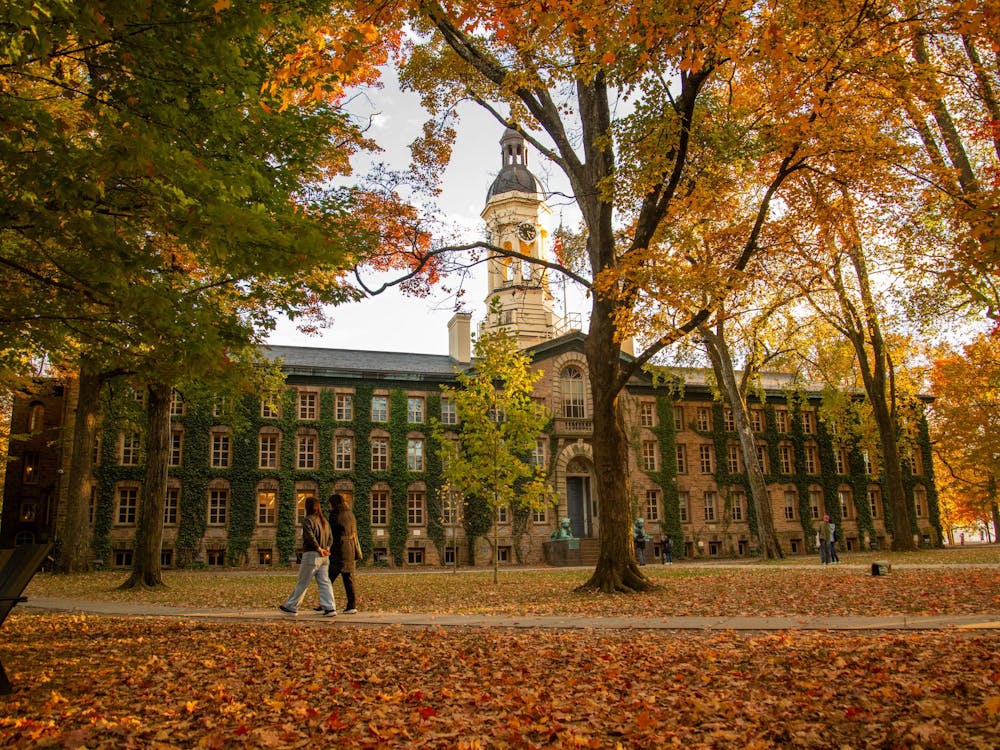New Jerseyans think their government has grown increasingly corrupt during the past four years, a poll released Sunday suggests.
Conducted by the Monmouth University Polling Institute in conjunction with Gannett New Jersey, the poll found that 60 percent of New Jersey residents believe there is "a lot" of corruption in their state. By contrast, in a 2003 Gannett poll of Garden State citizens, only 34 percent held that view.
"Corruption has been a big issue in New Jersey, despite measures to decrease it," said Patrick Murray, who directs the Monmouth University Polling Institute. "We found that in the past four years, public opinion has really felt these issues."
Residents expressed distrust of their government in various answers, with 70 percent saying their leaders "have their own financial interests at heart," up from 47 percent in the 2003 poll.
The poll was conducted by phone interview Sept. 27-30 and surveyed a random sample of 801 adult New Jersey residents.
Wilson School professor Richard Keevey, who directs the Policy Research Institute for the Region, said New Jerseyans' negative views of their state government stem from a recent rise in indictments of New Jersey politicians. Last month, for instance, 11 public officials were arrested for bribery.
"The lack of faith is being generated by the inappropriate behavior by a growing number of political folks, whether they are mayors, assemblymen or other legislators that have been indicted by the national government," Keevey said.
Keevey, a former New Jersey budget director and comptroller, said he is discouraged to see such corruption and its effect on public trust.

"If you are one such as myself who has been in the public service through government, it is truly disheartening to see such criminal acts in government," he said. "That doesn't mean that the public doesn't perceive it, too — the public becomes much more jaded and circumspect about the purpose of government."
Murray offered an additional explanation for the poll results, citing scandals preceding the last New Jersey gubernatorial race. In 2004, then-Governor James McGreevey resigned following revelations that he had a sexual relationship with a male homeland security adviser, whom many claimed had been unqualified for the post.
Scott Weingart '09, an active member of the College Democrats and longtime New Jersey resident, agreed that recent scandals have negatively affected public opinion but said broader trends were also factors.
"There has been a change in the attitude of the public, a willingness to challenge the government," he said. "People are less tolerant of government corruption."

Lifelong New Jersey resident Sarah Vander Ploeg '08 noted that it is easier to condemn politicians as a group than particular officials. "When you ask people about their representative, they will say everything is wonderful, but it is an issue of being more critical towards government in general," she said.
Vander Ploeg added that she doubts politicians in her home state will react to the Monmouth poll by attempting genuine reforms. "Politicians do listen to numbers and statistics," she said, "but whether they will do that by increasing transparency or whether they will start hiding things in a public relations campaign to improve their image is less obvious to me."
Weingart said it will be difficult to really eradicate New Jersey corruption. "There are so many municipalities in New Jersey, 40 legislative districts, all these public officials and contracts that would increase the probability of running into one or two corrupt [officials] in New Jersey," he said.
Another reason for state corruption, Weingart added, is the power of county party chairs, which he said leads to rampant political patronage.
Murray said the Monmouth Institute plans to continue monitoring New Jersey residents' views in the future. "We are going into a new legislative session," he said, "and we plan to cover changes in public opinion in regards to that in the upcoming months."







